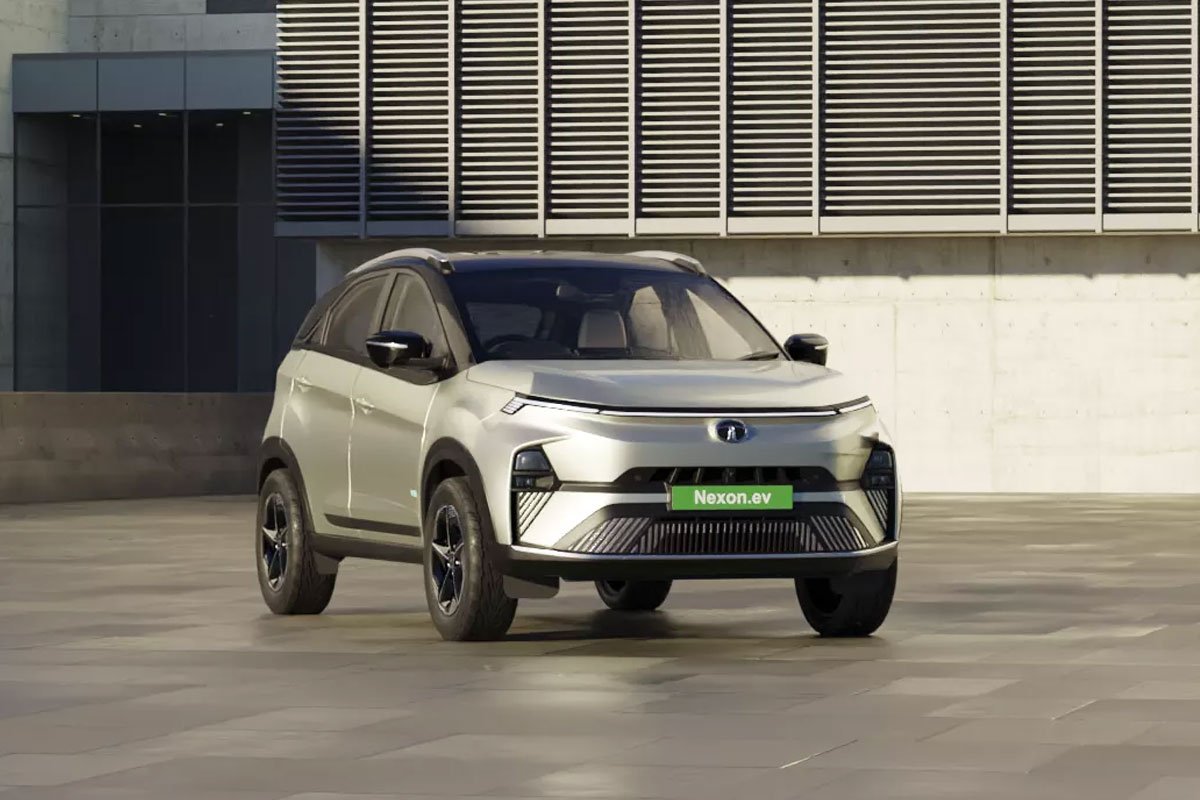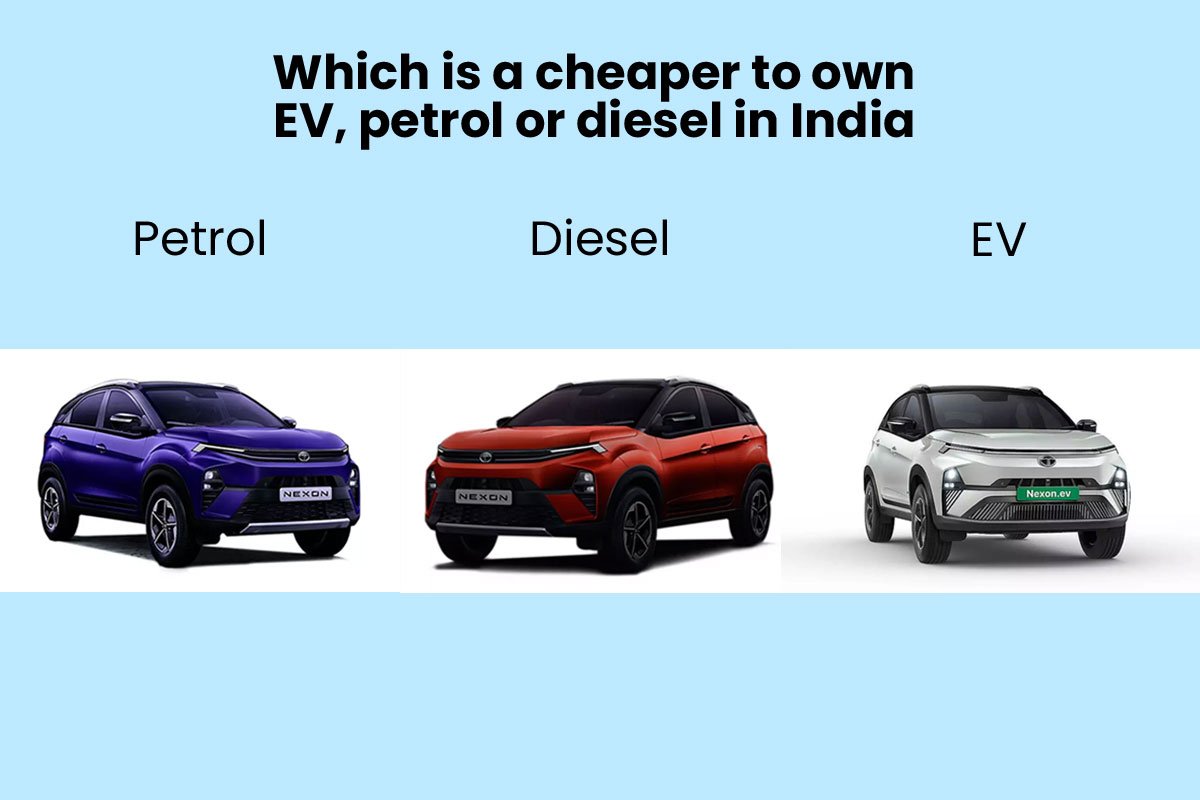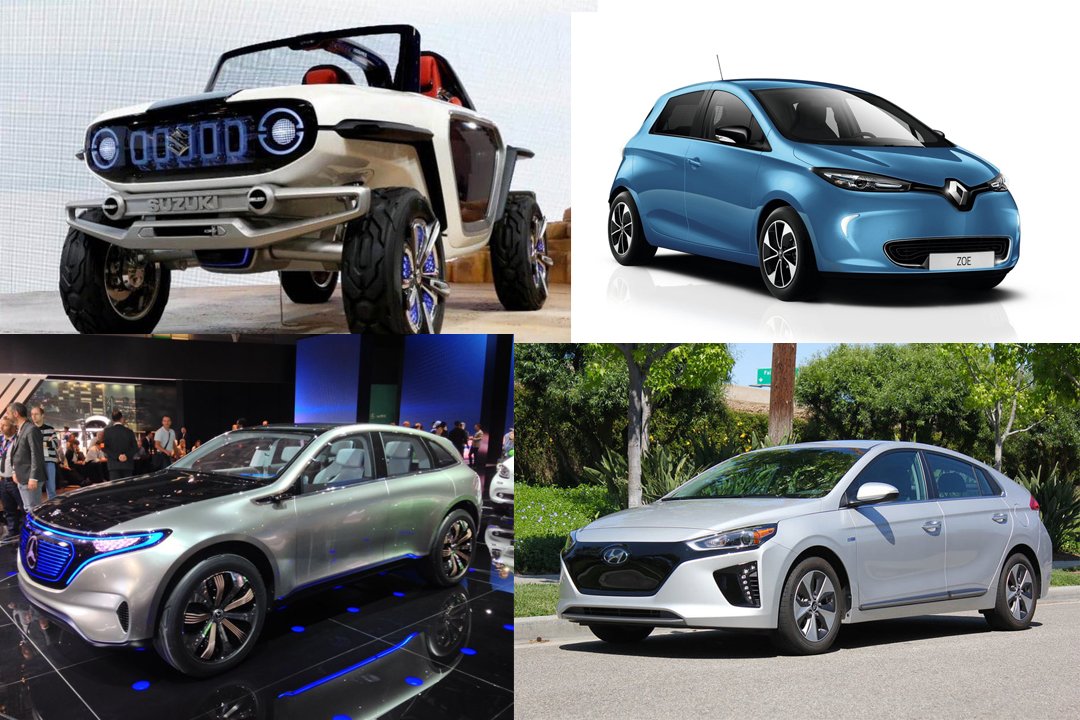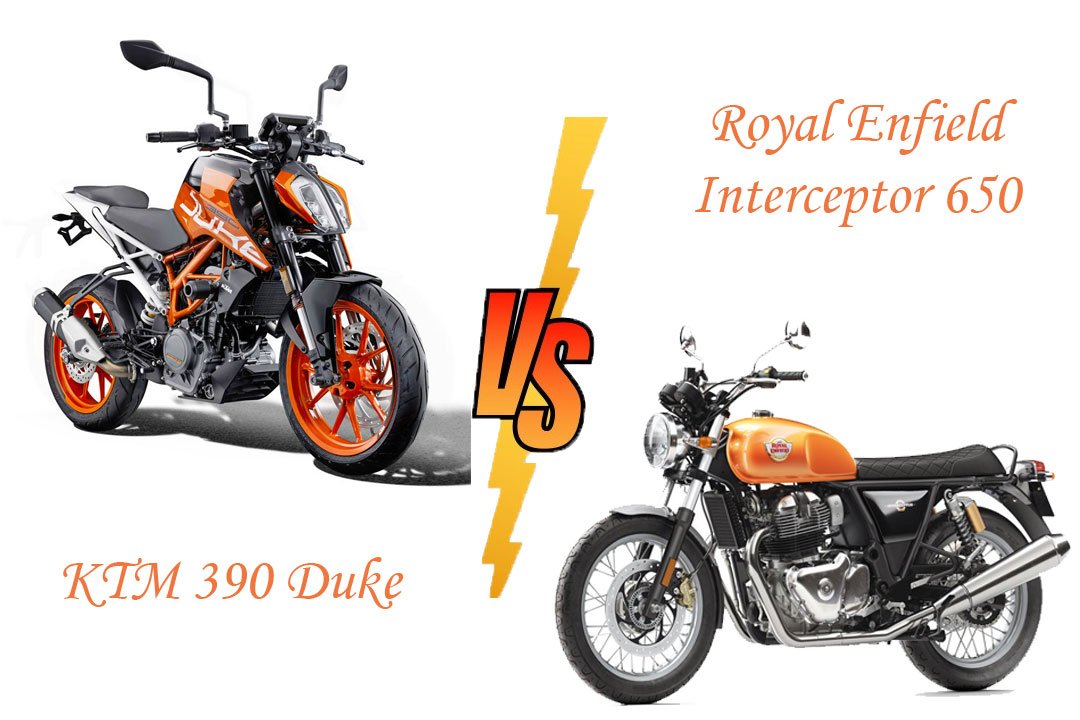Which is a cheaper to own, electric vehicle, petrol or diesel in India
In this article, we will calculate which is cheaper to own petrol/diesel or an EV. We are doing this in 2024, which may change in the future. We will consider the cost of the vehicle, the price to fill or recharge the vehicle and also the maintenance cost.
In India, people drive around 35/km per day, equating to 245 Km per week, 1050 km per month and 12600 km per year. However, this was a TOI survey from 2018. This may vary depending on the city, how better the public transport is and more. But we will consider this a base.
We will use Tata Nexon because we have EVs and petrol and diesel on the same platform. It will be easy to compare and calculate which is cheaper to own petrol/diesel or an EV.
Tata Nexon

We will consider the cost of the vehicle to buy, which will be the on-road price. We will consider the car being bought with cash and not the EMI option. If you buy with EMI, you can add your EMI to the cost which we will calculate to know your monthly expense. We will consider the most sold Variant of each vehicle.
| Tata Nexon EV MR | Tata Nexon EV LR | Tata Nexon Petrol | Tata Nexon Diesel | |
|---|---|---|---|---|
| Variant | Empowered | Empowered Plus LR | Fearless Plus S DT | Fearless Plus S DT Diesel |
| Ex-Showroom Price | Rs 17.84 Lakh | Rs 19.99 Lakh | Rs 13.60 Lakh | Rs 15 Lakh |
| Price on-road (Nagpur) | Rs 18.19 Lakhs | Rs 20.36 Lakhs | Rs 15.71 Lakh | Rs 17.68 Lakh |
| Service Cost (per year) | Rs 2500 | Rs 2500 | Rs 4500 | Rs 6000 |
| Fuel Efficiency | 7.3 Km/Kwh | 7 Km/Kwh | 12 kmpl | 17 Kmpl |
| Fuel Tank/Battery Capacity | 30 kWh | 40.5 kWh | 44 Litres | 44 Litres |
| Range | 219 Km | 283 Km | 528 Km | 748 Km |
| Cost to Refuel/Recharge | Home Charging – Rs 7 * 30 = Rs 210 Charging Station – Rs 15 * 30 = Rs 450 | Home Charging – Rs 7 * 40.5 = Rs 284 Charging Station – Rs 15 * 40.5 = Rs 608 | Rs 4,400 (Rs 100/Litre) | Rs 4,000 (Rs 90/Litre) |
| Cost per Km | Rs 0.9/Km & Rs 2/Km | Rs 1/Km & Rs 2.1/Km | Rs 8.3/Km | Rs 5.3/km |
This shows that running an EV costs 5 times less than a Diesel vehicle and 8 times less than a Petrol vehicle when charged at home.
Let’s calculate 5 Year cost for all the vehicle
| Tata Nexon EV MR | Tata Nexon EV LR | Tata Nexon Petrol | Tata Nexon Diesel | |
|---|---|---|---|---|
| Maintenance cost | Rs 12,500 | Rs 12,500 | Rs 22,500 | Rs 30,000 |
| Running Cost (Considering 12600 km per year travel, a total of 63,000 Km for 5 years) | 63,000 * 0.9 = Rs 56,700 63,000 * 2 = Rs 1,26,000 | 63,000 * 1 = Rs 63,000 63,000 * 2.1 = Rs 1,32,300 | 63,000 * 8.3 = Rs 5,22,900 | 63,000 * 5.3 = Rs 3,33,900 |
| Total Cost for 5 years | Rs 69,200 Rs 1,38,500 | Rs 75,500 Rs 1,44,800 | Rs 5,45,400 | Rs 3,63,900 |
| Running cost + Vehicle cost | Rs 18,88,200 Rs 19,57,500 | Rs 21,11,500 Rs 21,80,800 | Rs 21,16,400 | Rs 21,31,900 |
From this, we can see that the Medium Range EV is the cheapest in the 5th year, followed by Long Range EV if only charged at home, then comes the Petrol Nexon and then the Diesel and at last the Long Range EV if only charged in charging station.
Let’s calculate 8 Year cost for all the vehicle
| Tata Nexon EV MR | Tata Nexon EV LR | Tata Nexon Petrol | Tata Nexon Diesel | |
|---|---|---|---|---|
| Maintenance cost | Rs 20,000 | Rs 20,000 | Rs 36,000 | Rs 48,000 |
| Running Cost (Considering 12600 km per year travel, a total of 1,00,800 Km for 8 years) | 1,00,800 * 0.9 = Rs 90,720 1,00,800 * 2 = Rs 2,01,600 | 1,00,800 * 1 = Rs 1,00,800 1,00,800 * 2.1 = Rs 2,11,680 | 1,00,800 * 8.3 = Rs 8,36,640 | 1,00,800 * 5.3 = Rs 5,34,240 |
| Total Cost for 8 years | Rs 1,10,720 Rs 2,21,600 | Rs 1,20,800 Rs 2,21,600 | Rs 8,72,540 | Rs 5,82,240 |
| Running cost + Vehicle cost | Rs 19,29,720 Rs 20,40,600 | Rs 21,56,800 Rs 22,57,600 | Rs 24,43,540 | Rs 23,50,240 |
We have not counted the insurance cost, which will vary. The insurance of a petrol/diesel car is lower than an Electric vehicle. How much cannot be said, but for Tata Nexon Petrol & Diesel it is around Rs 56,000, though for EV, it is around Rs 71,000 this is the cost at the time of buying a vehicle. See this table for insurance rates according to the policy bazaar.
| Capacity of battery | Premium Rate for 1 year (In INR.) | Premium Rate for 3 years (In INR.) |
| More than 65 kilowatt | Rs 6707 | Rs 20659 |
| More than 30 kilowatt & less than 65Kilowatt | Rs 2738 | Rs 8104 |
| Less than 30 kilowatt | Rs 1761 | Rs 4492 |
Conclusion
According to the calculation, it shows that the running cost of an EV is much less, but the initial cost of buying an EV is more. That is because of the new technology of EVs. As we adapt to EVs, the initial cost of buying will come down, but the charging cost may go up due to rising demand. However, the charging cost will only go up for charging outlets and fast charges.
EVs are the best option for daily commutes, as we now have a decent range, and if you can charge at home your running cost will also be low. However, charging at home is not practical for everyone. You can opt for Fast charger installation at home, which would cost you an approx Rs 40000 for 7.4 kWh.
You can also see according to the calculation, the cost of petrol is not very high when you compare it to diesel, this is because you have to put a lot of kilometres in diesel to make sense of it, otherwise opting for diesel is just a waste of money.
So which vehicle is best to own, depends on your driving. If you are doing regular long-distance travel then diesel is the best option as of now, if you want a daily city commuter, EVs are the best. But if you want to do both I would suggest you buy a petrol vehicle. However, as we move towards the future, EVs are going to get better range and charging infrastructure. We also have hydrogen cars & Hybrid cars, that may become mainstream with time. So let us know in the comments which is cheaper to own petrol/diesel or EV, according to you.
So buying an EV is expensive, but when we talk about the overall running cost of an EV it is cheaper to own an EV over a petrol/diesel vehicle.






